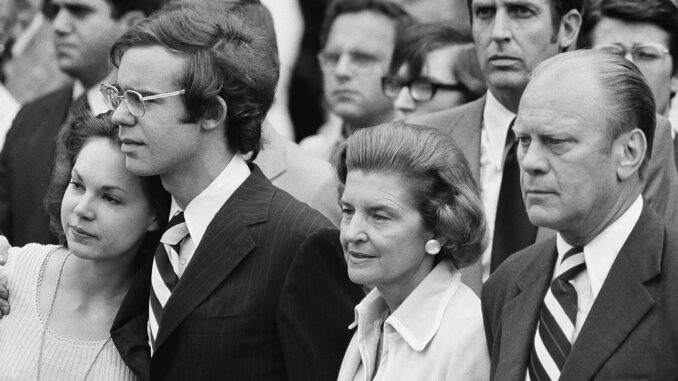
Here’s what happened this week in history.
Aug. 9
1173: Construction began on the campanile of Pisa Cathedral—better known as the Leaning Tower of Pisa.
1854: Henry David Thoreau’s “Walden,” which described his experiences while living near Walden Pond in Massachusetts, was published.
1945: U.S. B-29 Superfortress code-named Bockscar dropped a nuclear device over Nagasaki; the bombing and subsequent radiation poisoning killed an estimated 74,000 people.
1969: Actor Sharon Tate and four other people were found brutally slain at Tate’s Los Angeles home by cult leader Charles Manson’s followers.
1974: Gerald Ford took the oath of office to become US president after Richard Nixon’s resignation; in a speech following, Ford declared that “our long national nightmare is over.”
Aug. 10
1792: During the French Revolution, mobs in Paris attacked the Tuileries Palace, where King Louis XVI resided. (The king was later arrested, put on trial for treason, and executed.)
1821: Missouri became the 24th state admitted to the Union.
1945: A day after the atomic bombing of Nagasaki, Imperial Japan conveyed its willingness to surrender.
1969: Leno and Rosemary LaBianca were murdered in their Los Angeles home by members of Charles Manson’s cult, one day after actor Sharon Tate and four other people were slain.
1977: Postal employee David Berkowitz was arrested in Yonkers, New York, accused of being the “Son of Sam,” the gunman who killed six people and wounded seven others in the New York City area.
1993: Ruth Bader Ginsburg was sworn in as the second female justice on the U.S. Supreme Court.
Aug. 11
1860: The nation’s first successful silver mill began operation near Virginia City, Nevada.
1919: Germany’s Weimar Constitution was signed by President Friedrich Ebert.
1956: Abstract painter Jackson Pollock, 44, died.
1965: Rioting and looting that claimed 34 lives broke out in the predominantly Black Watts section of Los Angeles.
1992: Mall of America, the nation’s largest shopping-entertainment center, opened in Bloomington, Minnesota.
2014: Academy Award-winning actor and comedian Robin Williams, 63, died.
Aug. 12
1909: The Indianapolis Motor Speedway, home to the Indianapolis 500, first opened.
1953: The Soviet Union conducted a secret test of its first hydrogen bomb.
Aug. 13
1961: East Germany sealed off the border between Berlin’s eastern and western sectors before building a wall dividing the city for 28 years.
1521: Spanish conqueror Hernando Cortez captured Tenochtitlan (teh-natch-teet-LAHN’), present-day Mexico City, from the Aztecs.
1846: The American flag was raised in Los Angeles for the first time.
1910: Florence Nightingale, the founder of modern nursing, died in London at age 90.
1995: Baseball Hall of Famer Mickey Mantle died at a Dallas hospital of rapidly spreading liver cancer; he was 63.
2004: TV chef Julia Child died in Montecito, California, two days short of her 92nd birthday.
Aug. 14
1848: The Oregon Territory was created.
1935: President Franklin D. Roosevelt signed the Social Security Act into law.1945: President Harry S. Truman announced that Imperial Japan had surrendered unconditionally, ending World War II.
1947: Pakistan became independent of British rule.
1997: An unrepentant Timothy McVeigh was formally sentenced to death for the Oklahoma City bombing.
